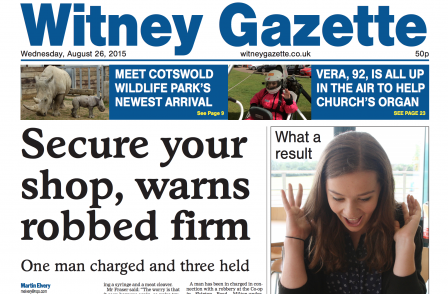
Newspapers are under no obligation to provide equal coverage for all parties in an election but are free to be partisan, the Independent Press Standards Organisation has held.
The declaration came as it rejected complaints that two newspapers, the Oxford Times and the Witney Gazette, had breached clauses 1 and 2 of the Editors Code of Practice, covering accuracy and the opportunity to reply respectively.
Colin Bex, who stood as Wessex Regionalists candidate for the Witney constituency in the general rlection, complained about stories, both headlined "One of the safest seats in Britain" which appeared in the Oxford Times on 30 April and the Witney Gazette on 6 May.
Both pieces reported on the candidates standing for Witney, and included short biographies of several candidates, along with their pictures. A footnote said "other candidates did not provide biographies".
Bex said he had provided the newspaper with a biography and photograph prior to publication, so the footnote inaccurate, and was concerned that readers would have been misled into believing that he was not a candidate.
He also raised more general concerns about his candidacy receiving less coverage than others', and the fact that the newspapers had not reported press releases he had provided about his campaign activities.
The newspaper provided email correspondence with Bex and his party representatives which showed that he had not provided a biography by the stated deadline. He had went to the offices for his photograph to be taken too late for inclusion in the articles.
The newspapers noted that their coverage on the relevant days referred to his candidacy elsewhere and named the party for which he was standing, and said it did not believe readers would have been misled.
It did not agree that Bex's concerns about the balance of its election coverage engaged the Code, and rejected any assertion that it had suppressed coverage of some of the parties, saying that the decision on what stories to report was at the discretion of the editor alone.
IPSO's complaints committee said the newspapers had shown that Bex provided his biography after the deadline for publication – there was no failure to take care over the accuracy of the article; the reference complained of was not inaccurate.
An opportunity to reply might be required where inaccuracies have been established, it went on, adding that as that was not the case on this occasion, there was no breach of Clause 2.
The committee added: "Newspapers are not required to provide equal coverage to all political parties. The Code expressly says that they are free to be partisan."
Bex's concern that his party was not given adequate coverage did not raise a breach of the Code.
Email pged@pressgazette.co.uk to point out mistakes, provide story tips or send in a letter for publication on our "Letters Page" blog
